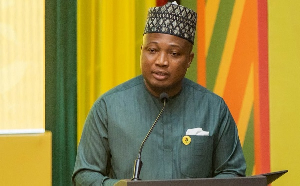SEWA Foundation, a non- governmental organization, in collaboration with the Anti-Human Traffic Unit of the Ghana Police Service and the Department of Children, have organized a community outreach programme for the people of Obooho, in the Fanteakwa District, to educate them on the dangers of child trafficking.
“The need to create awareness among the people in the area on the phenomenon has become necessary due to disturbing reports received by the three organizations on the trafficking of minors by parents in the area to work under degrading conditions in fishing and cocoa communities.” SEWA foundation noted.
Addressing the people, Assistant Superintendent of Police (ASP), Daniel Yaro, officer-in-charge of the Anti-Human Trafficking Unit in the Eastern Region said, child trafficking has become one major challenge for the nation, and therefore urged all to report people suspected to be involved in it.
ASP Yaro said, it was worrying to see little children as low as seven years whose parents have been deceived to believe that their children are being sent to work in lucrative businesses, but rather they are being subjected to dehumanizing conditions in fishing and cocoa growing areas.
He appealed to community leaders in the area to join hands with the police and other agencies to stop the activities of persons who were abusing the human dignity of children.
ASP Yaro advised parents to be careful in accepting proposals from strangers to give their children out to work in homes and other places.
He said the search for money; jobs, parental divorce and death of parents have been classified as the main causes of child trafficking.
ASP Yaro said some of the children go through ordeals like open sex and smoking with men said to be protecting them against harassment.
The Eastern Regional Director of the Department of Children, Mr. Anthony Dontoh, said women and children are more vulnerable, and need adequate protection from hazardous activities.
He said his outfit was simply making a contribution towards fighting child trafficking and child labour, however, the ultimate responsibility rested on parents and guardians to ensure that they did not give out their children to people and collect money.
Mr. Dontoh said trafficking within the country was more prevalent than trans-national trafficking, and the majority of victims are children.
Both boys and girls are trafficked within Ghana for forced labor in agriculture and the fishing industry and for street hawking.
Later in an interview, Mr. Jones Yeboah, Executive Director of SEWA Foundation said a lot of fishing communities in the region had been identified as child-trafficking zones, and urged people who know those behind such acts to report them to the police.
The group later donated items, mainly used clothes to the assembly member to be given to underprivileged children and orphans.
Regional News of Saturday, 15 February 2014
Source: GNA












